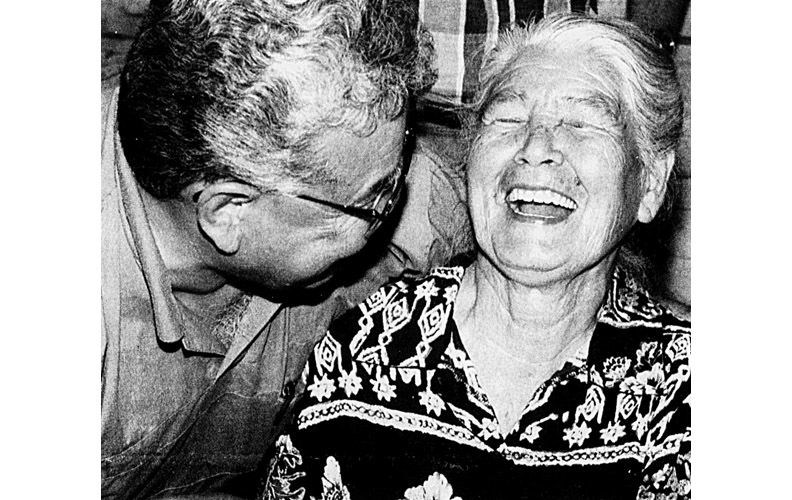FORT ST. JAMES -- He will be remembered as a true leader.
Many Dakelh/Sekani First Nations are mourning the loss of one of their most influential and highly regarded leaders, Chief Justa Monk of Tl'azt'en Nation.
Monk died Wednesday at his home in Tachie. He was 75.
Monk served as the first tribal chief of the Carrier-Sekani Tribal Council from 1981-1983 and again from 1990-1994.
His lengthy career as an elected politician wrapped up last summer when he stepped down as the chief of Tl'azt'en Nation.
"He was so influential and persuasive for Dakelh First Nations people," said Grand Chief Ed John, a hereditary chief of Tl'azt'en Nation located on the banks of Stuart Lake, about 50 kilometres from Fort St. James.
"He articulated all concerns for his people. And he was a strong negotiator for his people and for all First Nations."
And it was his people who kept Monk going strong until the very end of his career.
"He was firmly grounded in language and culture. He had a solid foundation of Dakelh ways. This was his greatest asset," John said. "But for me, Justa was family. We are of the same family. And he always treated me as a younger brother, always supportive, always loyal."
Monk grew up immersed in his language and culture but was forced to leave it all behind as a young boy and enter the residential school system.
After many years at Lejac School, outside of Fraser Lake, the physical and verbal abuse became unbearable. When an outbreak of tuberculosis hit the school when Monk was in Grade 7, he and his brother made the decision to flee.
The trauma of his experiences at Lejac led Monk to turn to alcohol and violence. When he was 25, he was charged with killing his brother John with a hunting knife. He was convicted of manslaughter and sentenced to two years less a day after the jury recommended maximum clemency to the judge.
That was a turning point in Monk's life. With help and guidance from elders, he devoted the rest of his days to social and cultural change by entering into politics.
"He was never afraid to speak up. He was a true advocate for our youth and our culture and always looked out for the best interest of the community and all First Nations," said Nak'azdli Whut'en Chief Alec McKinnon. "Politically, he was a strong negotiator but there was always friendship at the table. He was always smiling and always joking. He was very kind and generous."
Binche Keyoh Chief Josh Hallman worked with Monk for three years.
"It was a pleasure to work with him. I learned so much from him especially as a young leader," Hallman said. "He had a booming voice that got the attention from a lot of people. He was full of knowledge from his elders and he took that knowledge to fight for First Nations people. It's incredible to see a leader that had so much authority but also such respect from the people."
In his 49 years of service, one of Monk's most cherished roles as clan patriarch was his commitment to passing on the traditional systems of the Dakelh people. Despite his Grade 7 education, Monk was an educator in traditional teachings, culture, language and history passed down from elders.
In the last few months of his life, Monk served on the traditional governance steering committee for the Carrier Sekani Tribal Council.
He also served as executive director of Tl'azt'en Nation, co-chair of the Northwest Tribal Association and was a member of the task group of the First Nations Summit.
Author and activist Bridget Moran chronicled Monk's life in her 1994 biography, Justa: A First Nations Leader, focusing on Monk's lengthy - and eventually successful - battle to stop Alcan from completing the Kemano Completion Project, the long-panned second stage of the generating station.
Monk was optimistic and believed in a brighter future for his people including positive relationships with non-Indigenous peoples.
After a formal apology to residential school survivors in 2008 from Canadian Prime Minister Steven Harper, Monk saw it as an opportunity for forgiveness, a time to move forward.
"The formal apology is a time to bury old grudges and look to the future," Monk told the Prince George Free Press.
"We need to teach our young people. We need to tell them about wrong and right and what happened so they don't forget."
For many, Monk has left a legacy that will last for years to come.
"He had a dream to bring our traditional governance back to life," said Ruby Prince from Fort St. James.
"He mentored me and my husband and I've known him since I was a little girl. We are from the same community. He taught us our traditional values and he always wanted to teach us our old ways. I have so much respect from him and I know he has that same respect for so many people."


